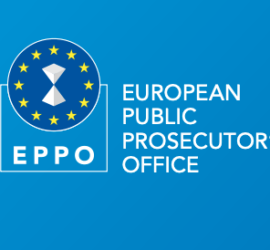Ilias Bantekas* ABSTRACT The lex sportiva embodies the notion that sport governing bodies (SGBs) possess full authority to promulgate their own rules and render these binding by reason of contract to all their constituent stakeholders, including, inter alia, athletes, clubs and national federations. Their non-profit character has allowed them to attract a preferential status and enjoy financial benefits generally out of reach to ordinary commercial actors (e.g., immunities, tax privileges), even though SGBs engage in significant revenue-generating activities. This preferential status has given them a dominant place in the marketplace of mega-sporting events and until recently shielded them from any […]
Katja van der Wal
by Tamas Dezso Ziegler, Balázs Horváthy, Thomas Buijnink ABSTRACT This paper elaborates on the role of legal exceptionalism in European integration from the perspective of EU Member States, with special regards to Hungary’s position. Its aim is to prove two points. First, exceptionalism is a natural consequence of increased dependency among European countries. From a legal perspective, this dependency translates into extensive regulatory practices in sensitive fields and increased pooling of sovereignty. Under such circumstances, if states disrespect EU law, they can become renegades, which is a logical consequence of intense cooperation. Second, the EU as a political community can […]
by Maria Lucia Passador* ABSTRACT The EU Artificial Intelligence Act (AI Act) is a landmark piece of legislation designed to regulate AI systems according to their risk levels and ensure the protection of fundamental rights. This paper focuses on the interplay between the AI Act and prudential supervision within the EU banking sector, with a particular focus on the role of the European Central Bank (ECB). The study delves into the legal framework underpinning the ECB’s supervisory responsibilities, and prudential tasks, also examining the AI governance, as well as the collaborative dynamics between the ECB, the AI Office, and the […]
Helen Jennings* ABSTRACT This paper examines a development in recent judgments of the European Court of Human Rights (“the Court,” “ECtHR”) regarding the prohibition of torture, inhuman and degrading treatment under Article 3 of the European Convention on Human Rights (“Article 3,” “ECHR”). Since the 2010s, the Court has linked the prohibition of degrading treatment uniquely with the concept of human dignity.1 In cases regarding certain applicant groups, in particular women from the Roma population and LGBT+ people, the Court has used the concept of human dignity to radically expand the typical boundaries of protection offered under Article 3. This paper […]
By Aleydis Nissen* In February 2024, during the final stages of adopting the EU Corporate Sustainability Due Diligence Directive (CS3D)—a flagship directive imposing human rights and environmental obligations on large companies in their global value chains—the United Nations High Commissioner for Human Rights, Volker Türk, warned that failure to pass the directive would be a “massive blow.” Fast forward to February 2025, and that blow has been delivered by the Ursula von der Leyen Commission II through an omnibus package aimed at “simplifying” the adopted CS3D in the name of “competitiveness”. The package calls for “far-reaching simplification” of CSRD, aligning […]
By James Marson and Katy Ferris* Can a driver of a vehicle transition to become its passenger during a journey if another passenger assumes control of the vehicle? Interestingly, the Motor Vehicle Insurance Directive (MVID) 2009/103/EC— the legislative framework governing compulsory motor insurance and civil liability across the EU—does not explicitly define the term “driver.” Instead, its provisions and case law predominantly refer to the “use of a vehicle.” This lack of definitional clarity leaves significant questions unanswered. Here we present the first analysis of this issue, highlighting that determining whether a driver becomes a passenger is primarily a factual […]
By Davide Genini On 10 September 2024, the European Court of Justice (ECJ) delivered a landmark judgment in KS and KD v Council. This blog post explores the ECJ’s judicial authority over CFSP matters in light of this pivotal decision, highlighting its potential impact on the broader European integration process. It argues that by extending its jurisdiction in CFSP via the political question doctrine, the Court has made a significant step towards deeper EU integration, though the challenges this poses should not be underestimated. I. Introduction In response to human rights violations that occurred during the execution of EULEX Kosovo […]
by: Justin Lindeboom** ABSTRACT In EU constitutional law scholarship, comparisons with US constitutional law have been both a major intergenerational topic of interest and a significant blind spot. On the one hand, similarities and differences in constitutional DNA and federal architecture have been analyzed by multiple generations of scholars over the past four decades.[1] Less attention, however, has been given to other avenues for EU–US comparative constitutional analysis, such as the modalities of negative market integration,[2] the procedural law governing “federal” (more accurately “supranational” in the EU context) courts,[3] or even the development of constitutional principles over time.[4] In this interview, […]
by: Sarah Ganty* & Dimitry V. Kochenov** ABSTRACT The European Union (EU) deploys a number of legal techniques in an effort to make sure that virtually no denial of racialized noncitizens’ rights–across the spectrum from equality and dignity to the right to life–is ever presented as a violation of EU law, even as the death-toll climbs to the dozens of thousands, turning the Mediterranean Sea into a mass grave through the EU’s and Member States’ incessant efforts. Making this possible is the work of what we would term “EU lawlessness law”: a careful summoning of diverse legal techniques to make […]
by: Peter Davis* INTRODUCTION This paper argues that a right to encryption exists under the European Charter of Fundamental Rights[1] (“Charter”). The primary consequence of this right, as elaborated below, is to preclude any legal instrument within the scope of the Charter’s application that indiscriminately reduces the efficacy of encryption in mass-market applications and devices. Or, put in “Crypto Wars”[2] vernacular, this paper claims that encryption “backdoors” are prohibited as a matter of EU law. On its face, this is an ambitious claim. Until recently,[3] “right to encryption” has only been spoken of gingerly in English language academic discourse[4] (though […]
by: Ivana Isailović* ABSTRACT The US Supreme Court’s decision in Dobbs—alongside transnational campaigns aimed at chipping away abortion access across EU Member States—has triggered concerns by EU institutions and governments on access to abortion in the Union. This paper maps out the ways in which the EU regulates abortion through economic and human rights frameworks and evaluates their effects on gender equality. I argue that current EU legal frameworks contribute to producing a system of stratified reproductive freedom which entrenches intersectional gender-based inequalities. On the one hand, EU economic law protects the reproductive freedom of women and pregnant people who […]
By Alexandros Kazimirov The creation of the European Public Prosecutor’s Office was a thirty-year effort to balance national sovereignty with supranational authority. Yet, just two years after its launch, the agency’s expanded role is an unintended consequence of everything that occurred during its establishment. Specifically, the expansion of the European Union’s budgetary base is set to fundamentally transform the Office’s caseload. But a transformation in scope requires structural reforms as well. This post outlines how a recent surge of investments in defense and energy presents an opportunity to reform the Office into an independent enforcement agency capable of delivering meaningful […]
By Mauro Fragale and Valentina Grilli* The Deepfake Dilemma: Legal Implications of AI-Generated Content In July, X (formerly Twitter) CEO Elon Musk shared a parody Kamala Harris campaign, in which the candidate for the United States (US) presidency – or rather, an AI-manipulated version of her voice – exposed herself as an incompetent, token candidate. The incident intensified an ongoing global debate about AI-generated misinformation, particularly as it affects important elections. Just a year ago, European Union (EU) institutions voiced their worries for this increasingly diffused phenomenon: in the wake of Russian efforts to undermine public opinion and influence citizens […]
by: Daniel Calleja, Tim Maxian Rusche, Trajan Shipley* “Europe will be forged in crises, and will be the sum of the solutions adopted for those crises” Jean Monnet[1] INTRODUCTION Since 2008, the Union faced a series of crises. The response – sometimes after initial attempts by Member States to “go it alone” – was ultimately always found at the level of the Union, within the existing EU Treaties, as they stood after the Treaty of Lisbon, and entailed new tasks and new responsibilities for the Union.[2] Sometimes, available legal options were straightforward: The Europeanisation of banking supervision relied on […]
by: Dora Kostakopoulou* Migration is a critical policy issue on a global scale. The number of international migrants and refugees worldwide has continued to grow rapidly in the 21st century while the decline in growth in working age population in the developed world ranges from moderate to severe in various countries. Environmental degradation and climate change are bound to induce large scale displacements of people in the near future as well as to expose the general lack of preparedness and deficiencies in policy in European Union countries and elsewhere. Yet, politicians are still attracted to the zero-migration myth and to restrictive migration […]
by Alessio Azzutti,* Pedro M. Batista,** Wolf-Georg Ringe*** Banking supervisors worldwide recognize the pressing need to harness frontier supervisory technology (SupTech) such as Artificial Intelligence (AI) to improve operational efficiency, enhance analytical capabilities, and augment decision-making. The European Central Bank (ECB) is no exception and has established a dedicated SupTech Hub to explore these opportunities. While existing literature primarily focuses on the techno-economic aspects of AI adoption by financial supervisors, this Article examines its techno-legal boundaries. The integration of AI-related technologies into banking supervision raises complex questions of fairness, transparency, and accountability, which, if not adequately addressed, can jeopardize the […]
By Fathima Rena Abdulla Much has been said about equality in the context of access to “consumption” of technology through discourses on net neutrality and the digital divide (see, most recently, §§ 9-12, 78th Session UNGA, Item 85, Report of the Secretary-General). The discourse on equal access to ownership of technology has been comparatively limited. Spectrum allocation policies are especially important, as they provide one of the few ways to own the means to produce or create technological content. As Europe strives to ensure equitable access to digital technologies, exemplified by Principle 12 of the European Declaration on Digital Rights […]
By Afrah Abdul, law student at the National University of Advanced Legal Studies, Kochi Introduction Year 2022, P&O Ferries sent shockwaves through the UK labour market by abruptly dismissing nearly 800 seafarers without notice or consultation. This unprecedented move not only disrupted vital shipping routes but also ignited a fierce debate about the adequacy of UK redundancy laws in protecting workers’ rights. The case exposes significant gaps in UK redundancy laws and challenges the effectiveness of current employee protections, necessitating a re-evaluation of the legal framework in a post-Brexit context. Background of the P&O Ferries Case On March 17, 2022, […]
By Ibrahim Ati On September 8, 2023, the Belgian Court of Cassation initiated a radical shift in established arbitration law by challenging the sovereignty of the Fédération Internationale de Football Association (FIFA) and other sports governing bodies when their awards intersect with European Union (EU) law.[1] This move will likely ignite a profound reconsideration of the enforceability and recognition of Court of Arbitration for Sport (CAS) awards within the EU’s legal framework when based even partly on European law elements. At its heart, the pivotal query, for which the RFC Seraing and its legal representatives advocated for years across multiple […]





